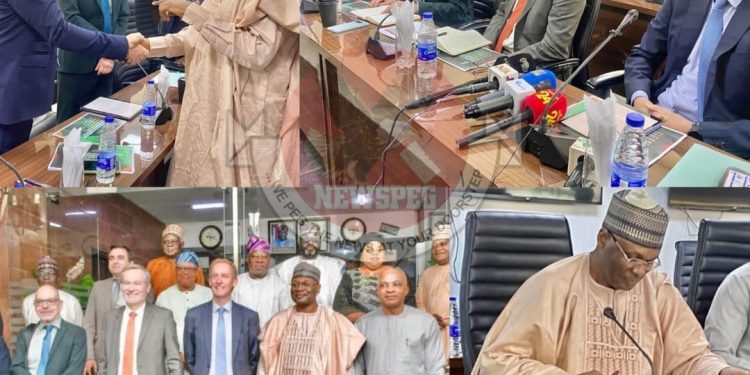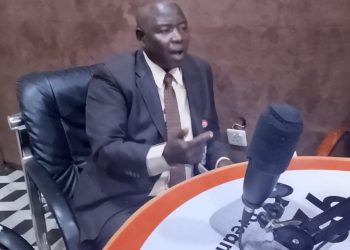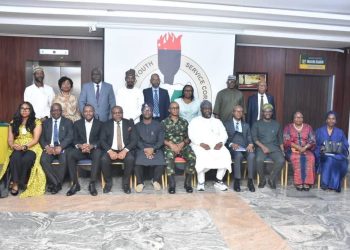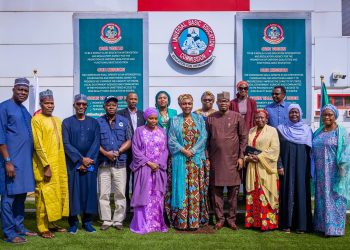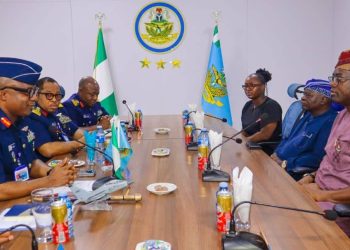By Nkechi Eze
The Independent National Electoral Commission (INEC) on Thursday received a delegation from the European Union Election Observation Follow-up Mission in Abuja, where both sides assessed Nigeria’s progress in addressing recommendations made after the 2023 general elections.
Speaking during the meeting, INEC Chairman, Prof. Mahmood Yakubu, explained that the visit was part of the EU’s long-standing practice of reviewing electoral reforms midway between one election cycle and the next. He noted that Nigeria had also hosted similar follow-up teams in 2017 and 2022.
Yakubu pointed out that the EU’s observation mission to the 2019 general elections issued 30 recommendations, 11 of them directed at INEC. For the 2023 polls, the EU submitted 23 recommendations, eight of which were for the Commission. Only one of these was highlighted as urgent, while the remaining 15—including five designated as priorities—were assigned to other institutions such as the National Assembly, executive, judiciary, political parties, civil society, professional bodies, and the media.
According to him, INEC has already implemented recommendations that required only internal adjustments and is working with partner institutions on cross-cutting issues. He added that proposals demanding legislative approval were awaiting the outcome of the National Assembly’s ongoing review process.
Yakubu stressed that timely amendments to the Electoral Act and the Constitution are critical for effective election planning, warning that delays could create uncertainty. “For instance, without clarity in the law, we cannot finalize regulations, guidelines, or training manuals for our election officials,” he cautioned.
The Chairman disclosed that both international and domestic observer reports influenced INEC’s 142 reform proposals after the 2023 polls. He reaffirmed the Commission’s resolve to maintain collaboration with international partners such as the EU, Commonwealth, African Union, and ECOWAS in preparation for the 2027 elections.
Head of the EU delegation and Chief Observer of the 2023 mission, Barry Andrews, applauded Nigeria’s role in shaping global democratic processes. He noted that the EU’s deployment for the last general election was one of its largest ever, underscoring the strength of EU–Nigeria relations.
“Our mission is to track the extent of progress in adopting the recommendations made after the 2023 elections. While we have seen notable improvements, some gaps remain, especially in judicial, constitutional, and administrative areas,” Andrews remarked. He praised INEC’s post-election review and identified transparency in the publication of results as a continuing area of concern. He also expressed interest in the conduct of off-cycle governorship elections since 2023, describing them as opportunities for learning and future refinement.
Andrews, who also serves as a Member of the European Parliament, emphasized that election observation is part of a wider global commitment to strengthening democracy. He further acknowledged Nigeria’s contributions to election monitoring efforts in Europe.
The EU delegation was made up of Barry Andrews, who served as Chief of Mission; Gautier Mignot, the EU Ambassador to Nigeria and ECOWAS; Ralph-Michael Peters, the Lead Election Expert; Eirini-Maria Gounari, Legal Specialist on elections; Maros Gabriel, Expert on Election Administration; and Laolu Olawumi, Programme Manager for Democracy and Rule of Law with the EU Delegation.


